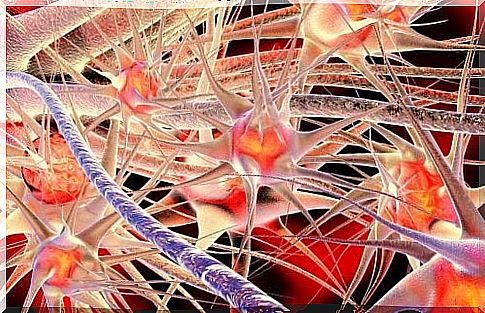Alprazolam: Uses And Effects
Alprazolam is an anxiolytic drug that belongs to the benzodiazepine family. It is used to treat anxiety episodes.
Although benzodiazepines also have sedative properties, it is preferable to use other drugs with less capacity to cause addiction for this indication. However, alprazolam is one of the benzodiazepines with the least addictive effect.
Before going into detail with the characteristics of the drug and knowing how it exerts its action in the body, it is important to know the pathology for which it is indicated : anxiety.
What is anxiety?

For starters, anxiety can be a normal emotion or a psychiatric disorder. Whether it is one type or another will depend on the intensity and the impact on the patient.
In normal situations, it is a proper and natural component of the mind that acts as a defense mechanism and allows us to adjust to stressful situations.
However, if limits are exceeded, anxiety becomes pathological, so that adaptation to the stressful situation is canceled or hindered.
Patients describe anxiety as a feeling of threat, of tense expectation of the future, and of disturbance of the psychosomatic balance in the absence of real danger. People with anxiety often suffer:
- Fatigue.
- Insomnia.
- Sweating
- Palpitations
On the other hand, alprazolam is also used to treat patients with both anxiety and depression symptoms.
Mechanism of action: what does the drug do in the body?

Benzodiazepines act at the level of the central nervous system (CNS) and can cause all kinds of depression. These effects include sedation and hypnosis, as well as skeletal muscle relaxation and anticonvulsant activity.
Recent evidence indicates that benzodiazepines owe their effect to the ability to bind gamma-aminobutyric acid to the GABA receptor complex. GABA is an inhibitory neurotransmitter that exerts its effects on specific receptor subtypes called GABA-A and GABA-B.
Now, what is a neurotransmitter? GABA, like other substances such as serotonin or adrenaline, are chemical substances that are synthesized in the body and that are responsible for the transmission of signals from one neuron to the next one.
Depending on the neurotransmitter it is, they will transmit one type of signal or another, triggering a different signaling marriage. In the case of GABA, when it is secreted, it emits signals of inhibition or reduction of neuronal activity.
GABA plays an important role in behavior, cognition, and the body’s response to stress. Therefore, low levels of this neurotransmitter are associated with anxiety disorders, among others. Hence the efficacy of benzodiazepines in this problem.
Pharmacokinetics: what happens to alprazolam in the body?
Pharmacokinetics is the set of different processes and changes that the drug undergoes in the body. It includes the following processes: absorption, distribution, metabolism, and elimination.
Alprazolam is administered orally and is rapidly absorbed. Peak concentrations in the blood are reached between one and two hours after administration.
This drug is metabolized, that is, it undergoes a series of chemical reactions to become more soluble and promote its elimination, mainly in the liver. Therefore, patients with liver problems should exercise caution with this drug.
Once metabolized, both the unmodified drug and the substances resulting from the process, called metabolites, are primarily excreted in the urine.
Adverse effects of alprazolam

The most common adverse effects of treatment with this benzodiazepine are related to its pharmacological effects, that is, to central nervous system depression.
In the event that the patient suffers from adverse effects, these usually develop when treatment is started. In addition, they normally disappear throughout the course or when the administered dose is decreased.
In this sense, patients suffering from anxiety and the association of anxiety and depression, which are the conditions for which alprazolam is indicated, may suffer the following as the most common adverse effects:
- Dizziness.
- Drowsiness.
- Attudirmiento.
However, these effects occur in 1% of cases. There are others even less frequent such as:
- Depression.
- Blurry vision.
- Headache.
- Sleeping problems.
Never self medicate
Alprazolam is an anxiolytic drug for the treatment of anxiety. You should not self-medicate without being under medical supervision, since misuse of the drug can be harmful to health. An overdose can even lead to death.









